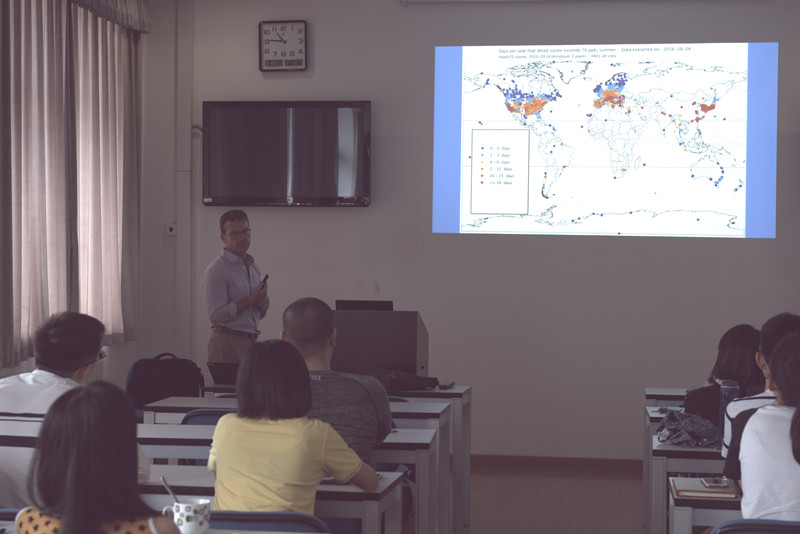主讲:Owen R. Cooper
时间:2018年7月2日,星期一,10:00-11:00
地点:物理楼北547
主持/联系:张 霖
摘要:
Tropospheric ozone is a greenhouse gas and pollutant detrimental to human health and crop and ecosystem productivity. Since 1990 a large portion of the anthropogenic emissions that react in the atmosphere to produce ozone has shifted from North America and Europe to Asia. This rapid shift, coupled with limited ozone monitoring in developing nations, left scientists unable to answer the most basic questions: Which regions of the world have the greatest human and plant exposure to ozone pollution? Is ozone continuing to decline in nations with strong emissions controls? To what extent is ozone increasing in the developing world? How can the atmospheric sciences community facilitate access to the ozone metrics necessary for quantifying ozone’s impact on human health and crop/ecosystem productivity? To answer these questions the International Global Atmospheric Chemistry Project (IGAC) initiated the Tropospheric Ozone Assessment Report (TOAR). With over 220 member scientists and air quality specialists from 36 nations, TOAR’s mission is to provide the research community with an up-to-date scientific assessment of tropospheric ozone’s global distribution and trends from the surface to the tropopause. TOAR has also built the world’s largest database of surface ozone observations and generated ozone exposure metrics at thousands of measurement sites around the world, freely accessible for research on the global-scale impact of ozone on climate, human health and crop/ecosystem productivity. Plots of these metrics show the regions of the world with the greatest ozone exposure for humans and crops/ecosystems, at least in areas where observations are available. The results also highlight regions where air quality is improving and where it has degraded. TOAR has also conducted the first intercomparison of tropospheric column ozone from ozonesondes and multiple satellite instruments, which provide similar estimates of the present-day tropospheric ozone burden.

